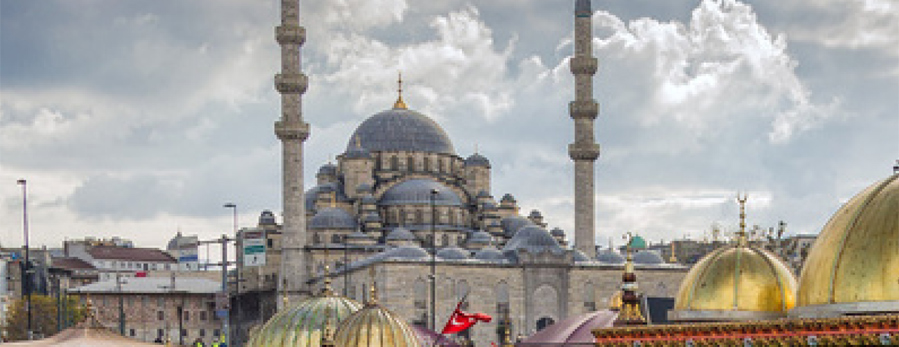#ITM 2013
Country focus: Turkey

Turkey ranks number 4 in the 2011 WTO table of export statistics with a value of 10.8 bn USD for textiles and 13.9 bn USD for garments. The ranking remains unchanged compared to 2010, growth however amounted to 15% and was only just below the growth of 17% for all exports of textiles and garments. Ahead of Turkey in the ranking are India, the EU (27) and of course China, the absolute number one with 94.4 bn USD for textiles and 153.8 bn for garments. Turkey ranks just behind Italy when the EU is split up into its individual countries. According to Eurostat 3.9 bn USD of exports from Turkey went to the EU in 2011, garments amounted to 8.186 bn USD which represented about 59% of exports to the EU. Germany and Italy are the most important countries for exports to the EU. Textiles and garments combined form a 19% share of exports (2010) and represent the most important trade group for exports from Turkey (source Fischer Weltallmanach). Motor vehicles, iron and steel, electrical machinery and food products are further important export trade groups.
These figures show the great importance of the textile and garment industry for Turkey as well as on the other hand how important the sales market EU is. Turkey has been part of the European customs union since 1996 that led to the removal of customs duties and provided Turkey with a competitive advantage over other textile producing countries.
The EU has however progressively concluded agreements with other countries and reduced restrictions or abolished them completely, which is why the country on the Bosporus has been faced with ever growing competition from Asia in recent years.
Despite low unit labour costs the country cannot compete with the prices of cheap products from the Far East any longer. The advantages for Turkey are the relative close proximity to the European single market, automation already well advanced to a large part and flexibility in production batch sizes. According to the EU report ‘Worldwide Sourcing 2012’ presented by the French association ‘Fédération de la Maille et de la Lingerie’ in February 2013 at the Sourcing trade fair ‘Zoom by Fatex’, Bangladesch has been able to double its share of exports of textiles and garments to the EU in the past five years and was ahead of Turkey in 2012 (+9% compared to 2011) whose share was reported to have declined by 4%. It is therefore only a small consolation that India has declined by 19% and even China by 10% for the first time. Besides Bangladesh, the countries of Vietnam (+2%), Sri Lanka (+8 %) and Cambodia (+38 %) are the beneficiaries of the altogether lower imports to the EU. Another impending adversity is the re-orientation of the Chinese textile industry towards more quality, more sustainability in production and transformation to an automated high-tech industry.
Economic development in Turkey
Let us have a look at the development of the Turkish economy as a whole. (...)
Read the complete article in the last issue 2 / 2013 of the TexData Magazine. If you aren 't already a subscriber, please register here!













